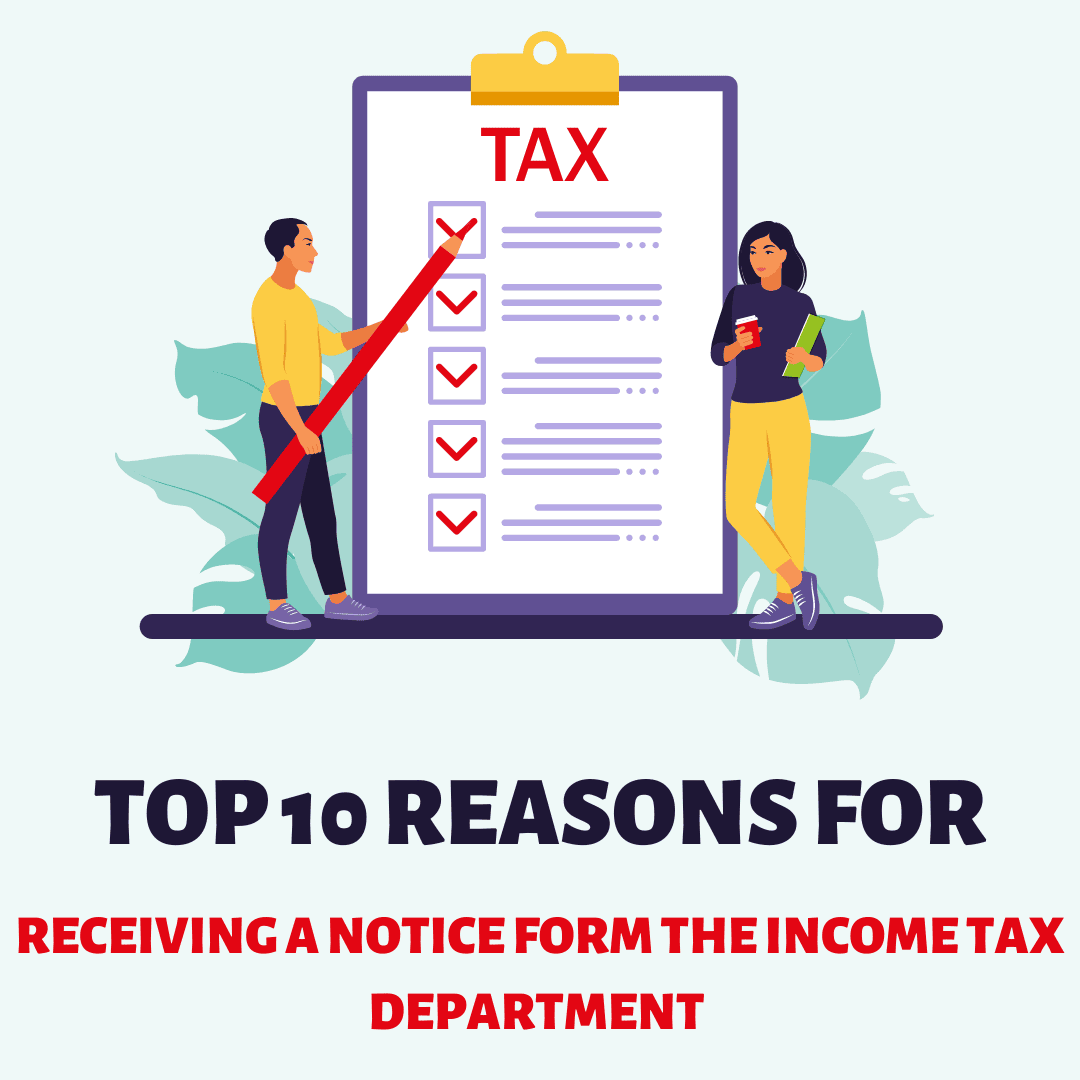Receiving a notice from the Income Tax Department can be an unsettling experience for any taxpayer. However, understanding the common reasons behind these notices can help you stay compliant and avoid potential stress. Here's a comprehensive blog post discussing the top 10 reasons why you might receive a notice from the Income Tax Department

1. Mismatch in TDS:
Discrepancies between the TDS (Tax Deducted at Source) claimed and the amounts reflected in Form 26AS can trigger a notice. Ensure your employer or deductor has filed the correct TDS information.
2. Discrepancy in Income Tax Return:
Errors in the income tax return, such as under-reporting income or claiming incorrect deductions, are common reasons for receiving a notice. Double-check your return for accuracy before submission.
3.Non-Filing of Income Tax Return:
Failing to file your income tax return by the due date can lead to a notice, reminding you to fulfill your filing obligations. The IT department can issue reminders for up to the previous six assessment years.
4. High-Value Transactions:
Not reporting high-value transactions, such as large deposits or withdrawals in bank accounts, can attract the attention of the tax authorities. Always disclose such transactions in your tax filings.
5. Unpaid Tax on Interest Income:
Taxpayers often overlook interest income from savings accounts or fixed deposits. Ensure you report and pay tax on all interest income to avoid receiving a notice.
6. Bogus Deductions and Claims:
Claiming false deductions or tax exemptions is a serious offense that can lead to a notice from the IT department. Only claim deductions for which you have valid proof.
7. Random Income Tax Scrutiny:
Sometimes, taxpayers are chosen for random scrutiny. If selected, you will receive a notice asking for additional details or documentation to support your tax return.
8. Investments in the Name of a Spouse:
Purchasing assets in the name of a spouse or family member to evade taxes is illegal. Any income from such investments must be declared in your tax return to avoid a notice.
9. Documentation Issues:
The IT department may request specific documentation to verify the information provided in your tax return. Promptly submit any requested documents to avoid further inquiries.
10. Filing a Defective Return:
Submitting a tax return with incomplete or incorrect information can result in a notice for filing a defective return. Review your return thoroughly to ensure all information is complete and accurate.
By being aware of these common triggers for tax notices, you can take proactive steps to ensure compliance with tax laws and regulations. Always maintain accurate records, report all income sources, and seek professional advice if you're unsure about your tax obligations.
For more detailed information on each of these points and how to address a notice if you receive one, refer to the comprehensive guides provided by tax experts. Stay informed, stay compliant, and navigate the tax season with confidence

